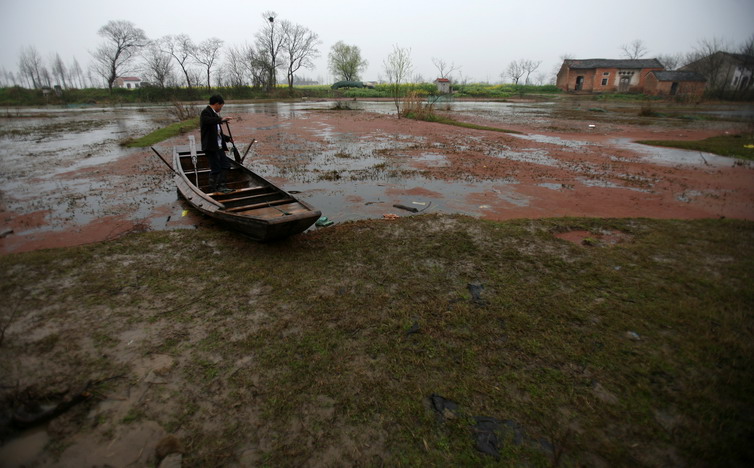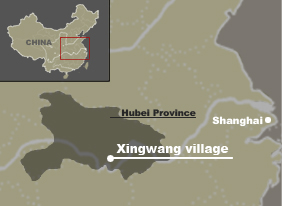
Villagers of Xingwang count on the Laolinchang River for drinking water and harvesting fishery as a livelihood.
 In Jianli County of central China's Hubei province, there's a place known as the "Village of Hepatitis B"-- a far cry away from its proper name, Xingwang, which means "prosperity" in Chinese. Since 1999, many villagers have suffered from Hepatitis B and other liver diseases, but the dire conditions there weren't exposed until reporters discovered the village in 2003.
In Jianli County of central China's Hubei province, there's a place known as the "Village of Hepatitis B"-- a far cry away from its proper name, Xingwang, which means "prosperity" in Chinese. Since 1999, many villagers have suffered from Hepatitis B and other liver diseases, but the dire conditions there weren't exposed until reporters discovered the village in 2003.
The villagers' livelihood is dependent on a river named Laolinchang, whose flow was blocked years ago when farmers created landfills to turn part of it into farmland. Since then, villagers have been drinking and breeding fish in this still water, which has simultaneously become a fertile ground for hepatitis and schistosomiasis viruses to breed and transmit.
After rampant infections and deaths in Xingwang were made public, the government has appropriated funds to renovate water closets and provide safe drinking water. But what's hard to change is the villagers' way of life and mentality. Today, except a few homes with wells near them, most villagers still use water from the river. Fish growing there are still being sold in the local markets.
The only doctor in the village clinic is scarcely visited by any patient, as villagers avoided doctor unless seriously ill. Some infected villagers also choose to conceal their illness, fearing discrimination.
In a country with a reported 120 million hepatitis B carriers, perhaps, there are more "villages of hepatitis B" like Xingwang. In some poverty-stricken areas of western China, only ten percent of children are vaccinated against it. Meanwhile, the government has pledged to shed the nickname of, "Country of Hepatitis B" by 2020.
| 1 | 2 |
- Farmland for Factories | 2007-12-27
- Regulators Move After Bets on Health | 2007-11-28
- Drug Price Reform in Crisis | 2007-11-01
- Insurance Fraud in Guangzhou's Hospitals | 2007-10-25
- The World's Largest Umbrella | 2007-05-10











